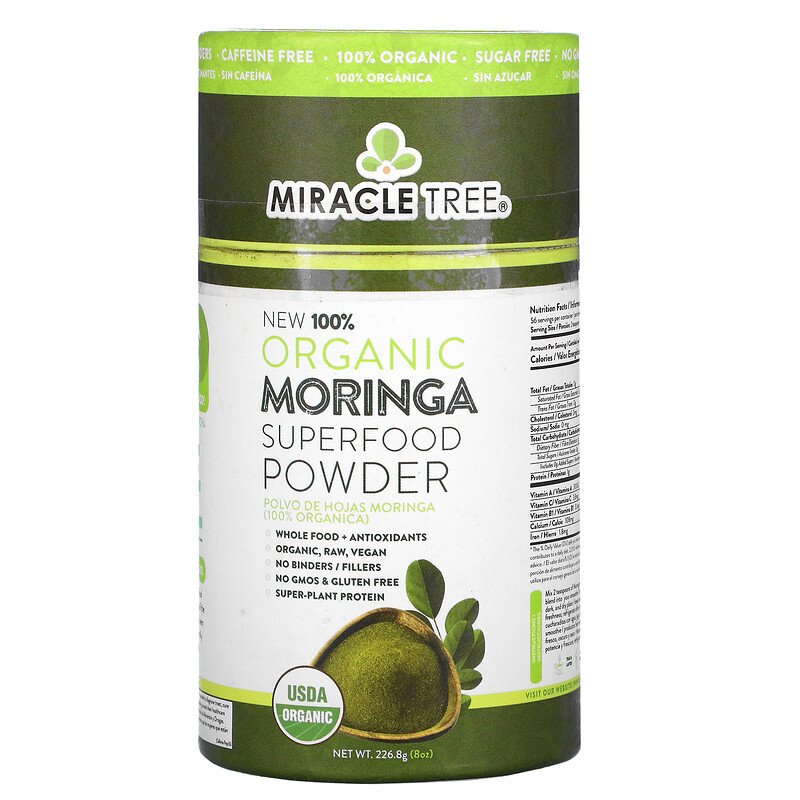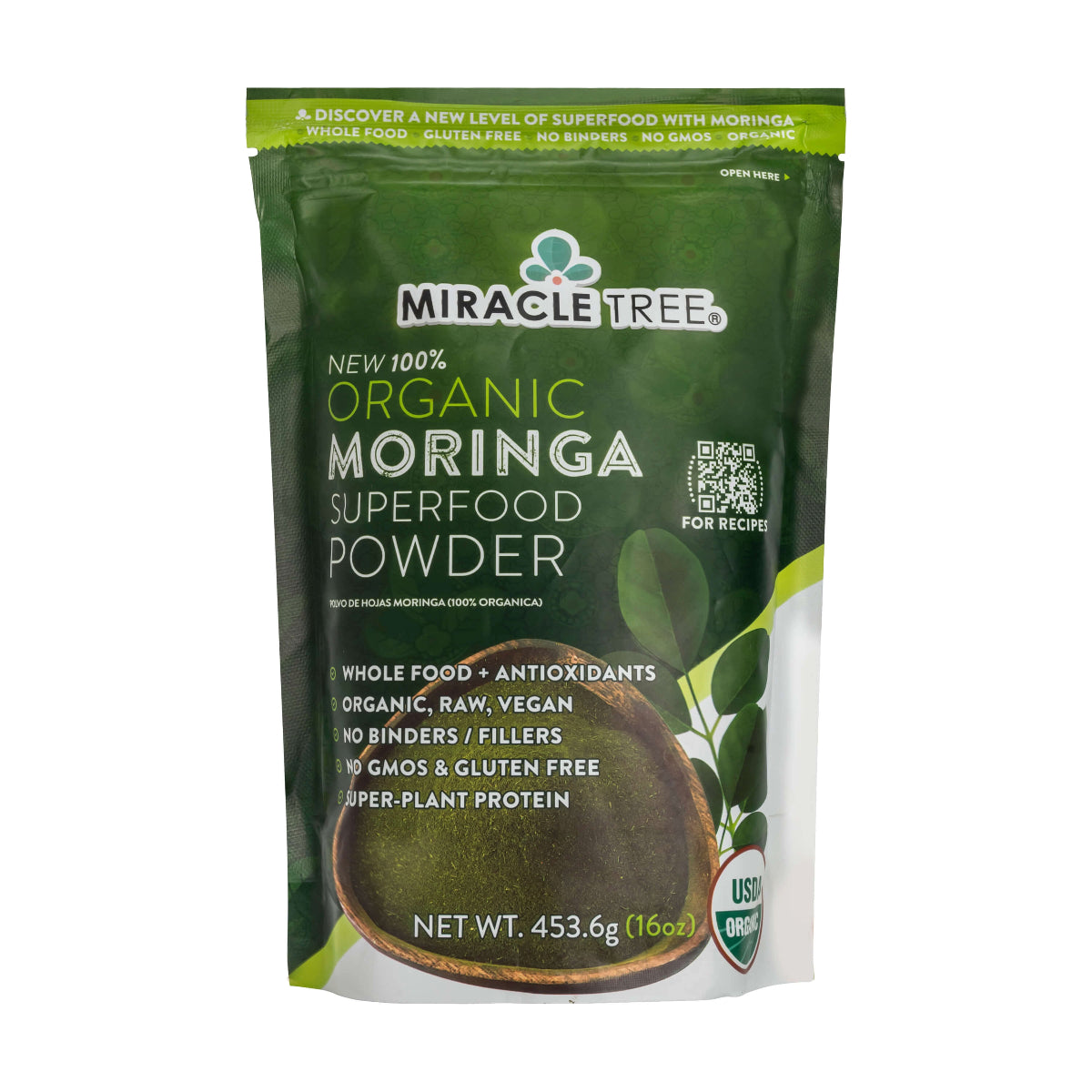Amino acids have become a buzzword in the wellness space in recent years. Experts have stated that amino acids are the “building blocks of life” and recommend including all nine amino acids into your diet regularly. Since they play a foundational role in our bodily functions and are involved in most essential chemical reactions, it’s key to focus on foods that are high in amino acids. So, how many amino acids are there in food? Foods like eggs, quinoa and legumes are all high in amino acids, but with moringa powder being a complete plant-based protein and requiring a small serving, it makes it the easiest option to include into your diet, and works for all dietary restrictions. So, how many amino acids are there in moringa powder? Let’s explore this miracle ingredient and find out.
What are amino acids?
In layman’s terms, “amino acids” refer to organic compounds that combine to make proteins. Proteins not only catalyze most of the reactions in living cells, they also control virtually all cellular processes. They are the basic structural component of our nervous system, muscles, skin and hair. When we consume food that contains protein, our digestive system breaks down this protein into amino acids. These amino acid compounds are vital for the formation of protein, synthesis of hormones and neurotransmitters and for the overall functioning of our body.
Our body requires 20 different amino acids for efficient functioning and growth. Out of so many, how many amino acids are there under the ‘essential’ bracket is something that is often asked. The nine essential amino acids include histidine, isoleucine, leucine, lysine, methionine, phenylalanine, threonine, tryptophan and valine. Three of them—leucine, isoleucine and valine—are called Branched-chain Amino Acids (BCAAs). These amino acids are metabolized in the muscle and are considered to be very important for muscle development. In fact, according to a study published in 2018 by Frontiers in Physiology, BCAAs help improve muscle function as well as muscle recovery. The other 11 are categorized into non-essential and conditionally essential depending on multiple factors. While non-essential amino acids are made by our body, essential amino acids must be obtained through our diet as our bodies can’t produce them. Moreover, unlike starch and fat, the human body does not store excess amino acids for later use. Hence, amino acid-rich foods must be consumed every day to get an adequate supply. To ensure an adequate and healthy intake of amino acids, a balanced diet is important without which our body will not be able to produce proteins effectively and, in turn, our muscles will start weakening.
What are the benefits of amino acids?
It’s safe to say, there are massive benefits of amino acids as a whole. These compounds are an indispensable component of normal, everyday bodily functions and their deficiency can manifest in serious forms. Here are some examples of the benefits and functions of amino acids:
- Improves the development of lean muscle mass and overall strength of the body by fighting fatigue, improving athletic performance and stimulating muscle recovery after exercise.
- Regulates enzymes to help digestion so that all important nutrients can be easily absorbed by the body.
- Produces neurotransmitters that are important coordinating factors of the central nervous system.
- Improves antioxidant production to reduce cellular damage.
- Provides anti-inflammatory and anti-oxidative effects to reduce damage to muscles.
- Enhances immune system response to defend the body against external viruses and infections.
- Regulates mood, sleep and general behaviors.
- Lowers cholesterol and liver fat.
- Amino acids are an important constituent of collagen, elastin, keratin and melanin, all of which help to maintain skin and hair health.
Most of the predominant amino acids are not produced by our body, hence it is imperative to ensure we intake them daily through external sources such as foods or supplements. A protein-rich diet such as fish, legumes, nuts, seeds and powders are good sources of amino acids.
How many amino acids are there in moringa powder?
The intense health benefits of moringa powder have been established. But after reading this, how many amino acids are there in moringa? Did you know it contains all nine essential amino acids? Yes, if the already established benefits of this miracle powder were not enough, moringa also contains all the key amino acids to help keep your body functioning at an optimum level. There are a total of 15 amino acids in moringa powder which include the nine essential ones. Most other plant-based proteins contain only seven of the nine essential amino acids, making moringa a complete plant protein and a staple that you should be including into your diet daily.







